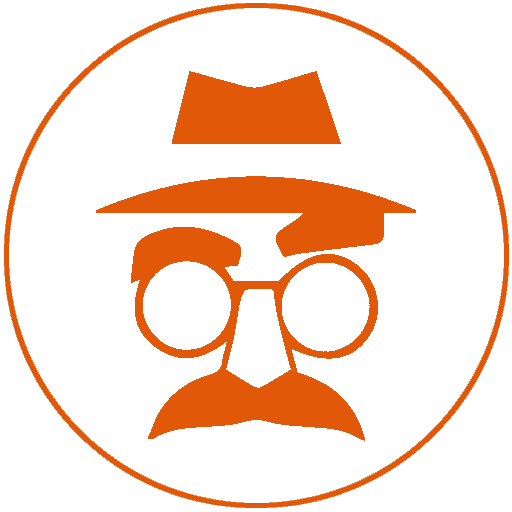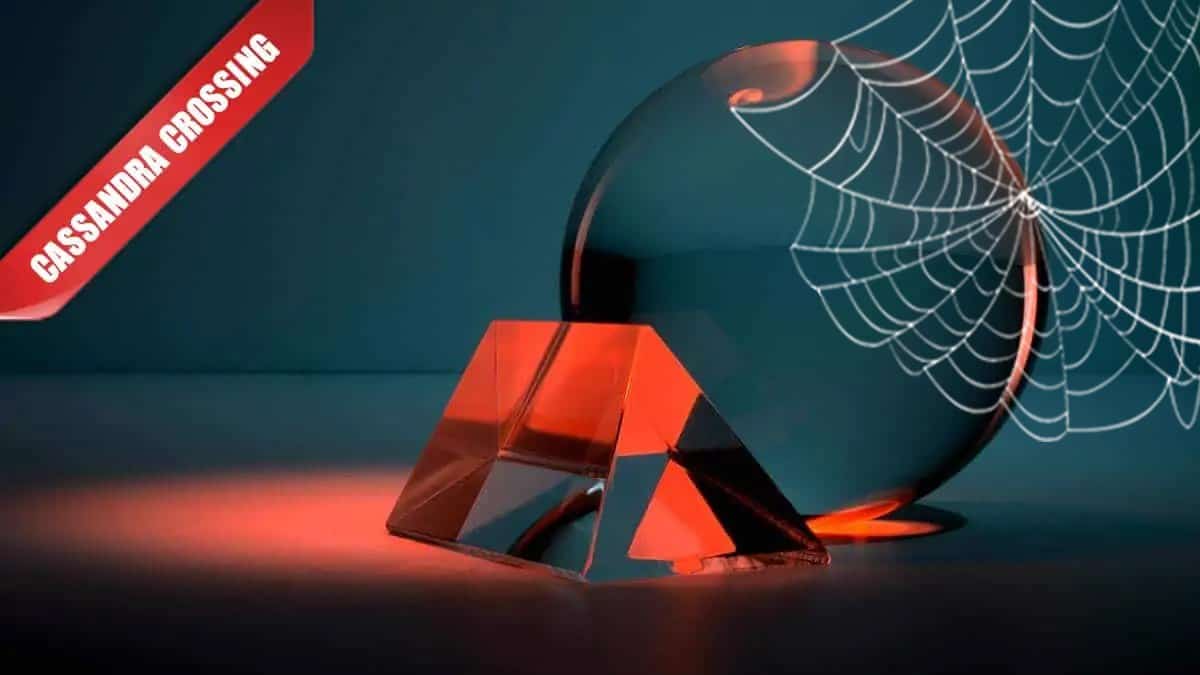This is a text automatically translated from Italian. If you appreciate our work and if you like reading it in your language, consider a donation to allow us to continue doing it and improving it.
The articles of Cassandra Crossing I'm under license CC BY-SA 4.0 | Cassandra Crossing is a column created by Marco Calamari with the "nom de plume" of Cassandra, born in 2005.
A reflection by Cassandra from way back in 2008, always very interesting and always very current even over the years.
This article was written on April 4, 2008 from Cassandra
Cassandra Crossing 118/ My name is Nobody
My name is Nobody… and that should be yours too. Why? Let's try to explain it to some categories of people.
Dear Lawyer, You are a specialist in a field in which we tend to see the whole world as a function of law as defined on a legal level. The fact that very different rights exist in the world, even if limited to the panorama of the so-called Western Democracies, says a lot about the dangers of such a point of view.
From what I studied at school as a principle, democracies place the state at the service of the citizen, and bind the latter to respect shared rules that limit the freedom of the individual to the extent strictly necessary to allow and encourage civil coexistence. In other words: everything that is not prohibited is permitted, only what is strictly necessary is prohibited, the Democratic State is at the service of the Citizen, it is not the citizen who is a subject of the Democratic State.
The conjugation of these principles in European democracies has always been a bit imperfect, because the State has always retained a "paternalistic" approach towards the citizen. Legacy of the monarchies and empires of the past? Let's take a step overseas and a few years back in time, and let's go to the United States. Not those of today, who became barbaric by losing pieces of democracy as a reaction to the 9/11 attack and can therefore be defined as "defeated" by terrorism (which got what it wanted); we return to the United States still proud of their democracy and not terrified of terrorism. It was possible for an American citizen to travel without documents and not declare his name to the authorities even if requested; following his refusal to identify himself, he could only be detained for possible investigations due to specific facts, but he could not be arrested or prosecuted in any way. Is this a "perversion" of a foreign country? No, it is simply the statement that man is free by nature and by law, and a restriction on his freedoms, even the extreme one of wanting to be nobody, is wrong and to be avoided. Where it is written that to allow assessment of responsibility, must the State act "a priori" against all its citizens, limiting their freedom? This can only be justified with a chain of false syllogisms that completely lose sight of the foundations of a democratic state of law, and lead to regulatory excesses such as "special" laws that remain for eternity; citizens of the United States and Italy have recently fallen victim to it, see Patriot Act and Reale law.
Dear Navigator, you have probably lived for years in a situation of freedom on the Internet which is decidedly superior to that granted to you by the laws of the State of which you are a citizen. In case you haven't noticed, the freedoms you enjoy online were not born by chance, and are not eternal and immutable. Restrictions on these freedoms, whether in place or planned by state and commercial powers with reasons both stated and obscure, are now underway and will close these spaces of freedom.
These powers are obviously not interested in the fact that the Internet was born only because these freedoms existed and were "natural" nor that in the vast majority of cases they were beneficial to everyone. They are only interested in using the Internet as a tool to control information for commercial purposes, or in using the Internet as a tool for highly effective and economical social control. In your opinion, who should act as a counterpart to these powers, which operate largely within the limits of current legality? No, don't look behind you: there is no one behind you, and you have to take care of it yourself. Otherwise, hurry up and enjoy these last years of relative freedom on the Internet. Will you then be able to tell how beautiful and important the Internet was to your children, or will you be ashamed of the consequences of your inaction and prefer to remain silent?
Dear Believer in the Free Exchange of Information and Culture, are you really convinced that advocating for your favorite freedoms while advocating the limitation of others is a line destined to succeed? Are you really convinced that you can do without a free Internet and that safeguarding your rights as a person "who has the courage of his own actions" is sufficient? Or don't you have to defend other people's freedoms too, even if you don't need to?
Dear friends all, it is certainly true that in all countries in the world the Government only does the good of its citizens.
The problem is that often, particularly in certain countries, many citizens do not agree. In democracies, state and electoral mechanisms only work if there is dialectics, mediation and the search for balance, otherwise distortions and authoritarian drifts are inevitable. The legislators who invented the principle of separation of powers knew this well. The Fathers of the American Constitution knew this well when, for example, they explicitly provided for the right of their citizens to bear arms as a balance of the authority of a State with a army, so that the State itself cannot harass the majority of its citizens. We are certainly not talking about armed conflict on the Internet, the Internet is a place of free activities by default, immaterial and at zero marginal cost; the economic or legal rules that apply elsewhere do not apply there, not even by analogy. The Internet is like Antarctica, outer space or a national park: a different place, with different rules, to be respected and not distorted, to be used where possible for the benefit of everyone. If being anonymous in the material world was a legal choice and possible for a democracy in the 80s, today on the Internet it is a natural choice, indeed a necessity, given that the control and data retention made possible by the advent of the Internet are dangerous both on the Internet and in the material world. Not only is the Internet becoming less free, but the Internet is also being used to compress spaces of freedom in the material world. You need privacy and anonymity to maintain your freedom and your civil rights, on and off the Internet. You need privacy and anonymity to guarantee, as Voltaire had well explained, the freedom of others too. Don't be scared or blackmailed by those who stir up the ghosts of paedo-terrorists.
Criminals have always been there, they are there today and they will be there tomorrow, they will be human beings subject to the laws and punishable according to them.
They will be prosecuted according to the laws and available investigation methods.
We are not asking for freedom for them, but for us and for our children.
Marco Calamari

Video column “A chat with Cassandra”
Cassandra's Slog (Static Blog).
Cassandra's archive: school, training and thought
Join communities
If you have found errors in the article you can report them by clicking here, Thank you!







